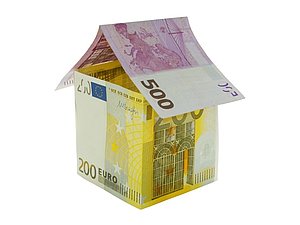Purchase and sale of real estate
Event description

In sales of real property, the seller is liable for real estate transfer tax and, in some cases, also for personal income tax on capital gains. Personal income tax on capital gains is not assessed if more than 15 years have passed between the acquisition and the disposal of the real property.
What is the seller required to do?
The seller must file a form called Real estate transfer tax return with the tax office in whose territory the real property is located within 15 days of the conclusion of the agreement. The seller must attach to the tax return the original purchase agreement and, if ownership is not shown in the land register, a proof of ownership.
When real property is sold by a natural person before completion of 15 years of ownership, this person must declare capital gains within 15 days of the contract date with the tax office in whose territory the real property is located.

Example of a completed form

Did you know?
The payer of real estate transfer tax is the seller of property. The payer of real estate transfer tax may also be the buyer of the property if so stated in the purchase agreement.
Assessment and payment of real estate transfer tax
After receiving the tax return, the tax authority assesses the real estate transfer tax (2% of the value of property). If the tax authority establishes that the contractual value reflects the comparable market value, it will issue a decision in a fast-track procedure and serve a payment order on the person liable for income tax. When the tax authority determines that the person liable for income tax has paid the amount stated on the payment order (at a post office or bank), the tax authority confirms, on the original purchase agreement, that the tax has been assessed and paid. Without a certificate of payment of real estate transfer tax it is not possible to have signatures on the purchase agreement notarised or to register the property right in the land register.
The real estate transfer tax constitutes the revenue of the municipality in whose territory the property is situated and is paid into the municipality's transitional sub-account SI, payment reference code SI19 DŠ-14001.
Personal income tax on capital gains
The tax base for the capital gains tax assessment is the difference between the capital value on disposal and the capital value on acquisition. The tax rate, which is initially set at 25 %, decreases after every five years of real property ownership (after five years, the tax rate is 20 %, after ten years 15 %); after 15 years, no tax is charged. The tax base is reduced by flat rate expenses, the real estate transfer tax paid, inheritance and gift tax, and any actual costs incurred by the person liable for income tax due to investing in the refurbishment of the real property. The taxable person proves these costs by submitting appropriate invoices; therefore, it is recommended the taxable person keep the invoices received from suppliers or contractors. The tax authority issues an assessment decision.
The capital gains tax must be paid to the state budget through the transitional tax account, i.e. state budget account no. SI56011008881000030, payment reference code SI19 DŠ-41009.
Exemption from personal income tax on capital gains
If an individual sells a flat or a residential house (consisting of not more than two units and associated land) in which he or she had permanent residence, which he or she owned and which he or she actually lived in for at least three years prior to disposal, he or she is liable only for real estate transfer tax (2%) and not for personal income tax on capital gains.




